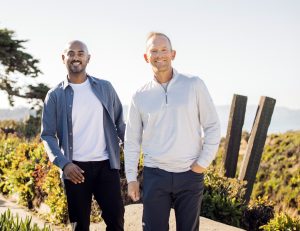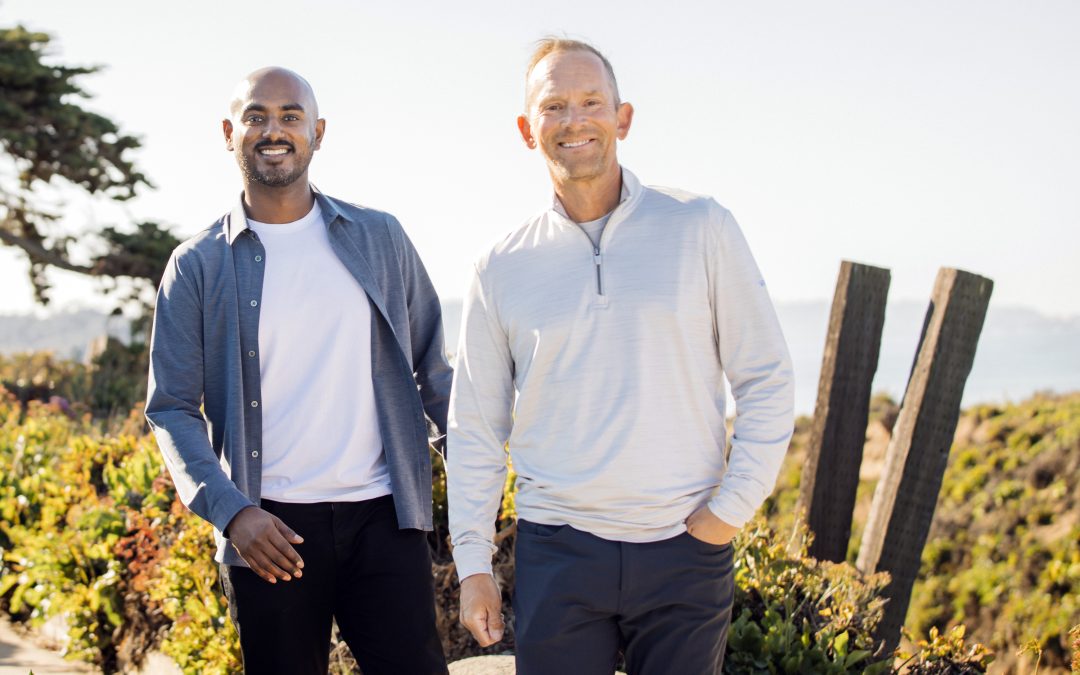Marty Hahnfeld has something to say about the increasingly “noisy” restaurant tech landscape, but the former Olo exec is not willing to shout just to be heard. As he and fellow Olo long-timer Juan George launch a new company called 858 Partners to advise and invest in tech-focused startups, they’re focusing on brands and ideas that make what they call a “material” difference in restaurant operations—accuracy, speed of service and higher sales.
 To combat the clamor and peacocking the pair sees throughout the industry, they intend to become a powerful but quieter force in the next phase of restaurant digitization. Along the way, they also aim to prove that restaurant technology is still a viable investment ecosystem that’s nowhere near out to pasture.
To combat the clamor and peacocking the pair sees throughout the industry, they intend to become a powerful but quieter force in the next phase of restaurant digitization. Along the way, they also aim to prove that restaurant technology is still a viable investment ecosystem that’s nowhere near out to pasture.
That potential, in Hahnfeld’s eyes, is a combination between unsolved problems remaining in the category, an ongoing need to balance the efficiency of off-premises operations with those inside the restaurant, and also the sheer size of the restaurant market.
“It’s a huge addressable market and, for what it’s worth, I think it will continue to attract funding even in this more challenging environment, because that target market is so irresistible to an investor,” he said.
Thinking back to earlier days at Olo when the company was one of the first software companies at industry trade shows now thickly populated by tech providers, he said the ecosystem has flipped to such an extent that he feels for restaurant execs now getting mobbed by vendors.
“You sort of imagine the reaction from CFOs and other people who attend the show, they’re going to be wondering who’s around the corner and wanting to sell them something,’ Hahnfeld said. “It’s becoming defeatist. The loudness and exuberance to it all is turning restaurant operators away and they’re getting fatigued.”
A different kind of investor
Stressing he doesn’t want to carry a big stick or bang a drum to get attention in the marketplace, Hahnfeld and George want to counterbalance that “ever-escalating volume contest” by creating a safe space for many of the high-level restaurant operators the founders already know on a first-name basis.
“You have to be focused on the problem, and you have to be listening to the people who have the problem,” Hahnfeld added. “Anything that steers you away from either of those things is a distraction.”
That mindset translates to a playbook of subtlety and quiet moves to advise and fund companies that are attacking issues like back-of-the-house throughput and accuracy, which might not be as attention getting as the marketing end of the spectrum.
That includes kitchen display systems, drive-thru voice AI, services that connect disparate systems, and upstarts looking to upend the massive point-of-sale companies that have become “monoliths” in trying to do so many different things for restaurants.
Asked if 858’s business model is similar to Branded Strategic Hospitality, which also advises and invests in restaurant tech startups, Hahnfeld said the comparison makes sense, but “what they’re doing is different and definitely more of a scattershot relative to us.” He added that the New York-based group has depth in areas that California-based Hahnfeld and George do not.
On the trend of tech companies following in Olo’s footsteps to buy complementary tech providers to build an all-encompassing ecosystem, Hahnfeld said there are valid reasons for operators wanting to work with fewer vendors or to take the opposite approach and use open APIs to connect “best-of-breed” providers.
He sees a place for both perspectives in the marketplace.
“POS companies have generally acted with a certain amount of hubris because their position in the center of the tech stack has been just regarded as so protected, and I don’t think it is,” he said. “In many cases the ecommerce stack a la Olo has become the more accurate system of record and has accuracy in ways you maybe wouldn’t expect [that are] better than the POS.”
That point of view that’s shared by many in the industry could lead to the role of the POS becoming marginalized over time, which 858 believes creates opportunities across the board for new approaches to take hold.
The art in the deals
 As the former senior VP of enterprise sales, George was Olo’s fourth employee and the “one and only person” Hahnfeld inherited on his small team within the company. While they each departed the company within a few months of each other in 2022, leaving and starting something new together was not planned until they started getting together in San Diego, where they’re both based.
As the former senior VP of enterprise sales, George was Olo’s fourth employee and the “one and only person” Hahnfeld inherited on his small team within the company. While they each departed the company within a few months of each other in 2022, leaving and starting something new together was not planned until they started getting together in San Diego, where they’re both based.
The pair received a number of inbound inquiries from companies inside and beyond the restaurant tech space, and they began coalescing around the idea that there were countless essential, need-to-have solutions that weren’t getting nearly as much attention from other players in the category.
As they officially launch the company this spring, their objective is to partner with companies addressing the “high-value” opportunities they believe in. Their involvement could mean advising a company on a fee basis or going deeper with a strategic investment.
Compared to larger private equity firms, 858 Partners will only have the bandwidth for one to three such investments every year. Hahnfeld noted they already have an active pipeline of opportunities.
He clarified that the company wouldn’t necessarily engage with restaurant brands on a consulting basis, and said their focus is taking new technologies and bringing them to market—which could inevitably include some of the flash and pizzazz they decry across the industry.
Reflecting on Olo’s own journey throughout their tenure, Hahnfeld said growing the company from a million dollars in revenue to nearly $200 million was a fantastic experience, but said “the rigors of a public company takes the art out of it for me.”
Stressing that there’s “no weirdness” between he and Olo founder and CEO Noah Glass, Hahnfeld said he admires building such an “honest, high-trust” company that is making a big impact in the industry, while growing its offerings with focus and purpose.
“We feel like we walked away having built Olo the right way,” he added. “Given that we were both pretty connected across the entire ecosystem … we were pretty flattered by this healthy amount of inbound inquiries.”
It’s an interesting playbook, bringing another source of advice and funding to a category described as overfunded, but Hahnfeld said the beauty is in the details—and the style in which they approach this new mission.
“We see our greatest asset as a partner as being able to really put our thumbs on the scale of success of a company, with really important technology or important services that are having a hard time getting attention,” he said. “We have brought together over 20 brand executives representing over 25,000 locations across a bunch of different service models—this is a real luxury for us—and now we have a direct line to gauge interest in topics and technologies, and they’ll help us evaluate their potential.”


